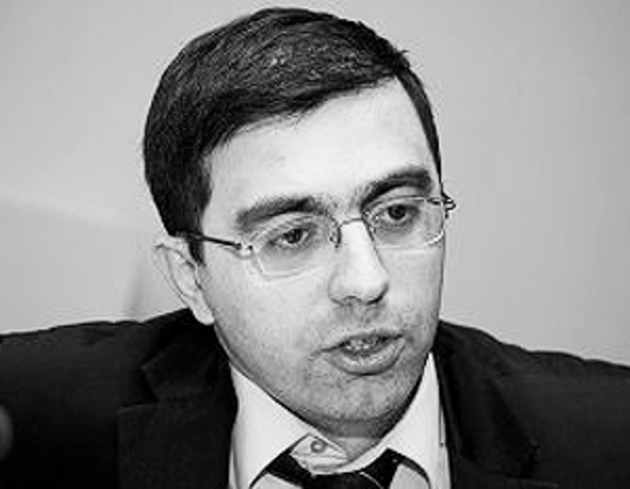By Georgy Kalatozishvili, exclusively to VK
Experts are used assume that there are no pro-Russian forces within the Georgian political community. Some admit that there are such forces but they are ‘marginalized’. But it is obvious that it’s impossible to ‘marginalize’ a political party whose program answers to the demands and expectations of a certain considerable stratum of the country’s population.
Up until now the political mainstream in Georgia was limited to the space where any strategic political compromise with Russia was a strict taboo. At least, the issue of the relations with the country’s Northern neighbor was to be separated from the problem of the breakaway republics. The general line of the foreign policy was defined by a number of ‘mantras’, including ‘Georgia will be NATO and EU member’. So the pro-Western orientation predominated. However, the lack of actual results of such policy and the obvious indifference of the West absorbed by its own economic problems has bit by bit destroyed this direct line which all political forces, big or small, used to follow.
The most graphic example of that is the transformation of the program of the ‘Free Georgia’ party’s program. The party’s leader Kakha Kukava started his political career as an ardent partisan of the first president, Zviad Gamsakhurdia, who declared Georgia’s independence and started the war in South Ossetia. After that for many ears he has been a loyal supporter of Eduard Shevarnadze, but that turned on him during the ‘rose revolution’ of 2003. He was elected an MP from Saakashvili’s ‘United national movement’ party.
There’s no sense in listing all the perturbations of this politician’s career. The point is that in 2009 he at last found his political niche, the niche that turned out to be in good demand in Moscow. Since then Kukava visited Moscow, met with Russia’s Chief Sanitary Inspector Gennady Onishenko and negotiated the return of Georgian products to the Russian market with him. Onishenko is a difficult person and he rarely meats with politicians from post-Soviet states, and especially with those whose parties are nor represented in the country’s parliament and have scanty ratings. Nevertheless, the very fact that Kukava was ready to negotiate with the Russian side was very important for Moscow: it say a new trend on the Georgian political field and decided to indulge it. Of course, the negotiations of Borzhomi and Georgian wine return to Russia haven’t resulted in anything yet (and they can’t until Georgia at least regards the opportunity of entering in any of the post-Soviet integration structures, such as the Customs Union), but Kukava used the support he got in Moscow to promote his party, ‘Free Georgia’, at home. He also established good relations with one of the richest businessmen of Russia, multi-billionaire Alexander Ebralidze. He promised to help with the party’s financing. It is yet unclear how they will play this out as Georgian law prohibits financing political parties from abroad, but the very precedent is important. It is also noteworthy that Ebralidze presents a certain stratum: 200 of top Georgian businessmen in Russia control some $ 50 billion.
As for the ‘Free Georgia’s ideology, Kukava stresses the opposition of pro-Western and pro-Russian orientation. “Today all other parties try to escape the truth. And the truth is that Georgia isn’t truly independent, it is governed from Washington, - says the leader of the Free Georgia, - And until the state is freed from this American dictatorship we can’t hold any fair elections or start negotiation process with Russians, Abkhazians and Ossetians or restore our economy or even retain our national identity”.
The party’s program has 9 principle points: first of them is the renunciation of Georgia’s NATO aspirations and withdrawal of Georgian contingent from Afghanistan. After that there are the ‘condemnation of Saakashvili regime’, the ‘confiscation of illegally acquired property’, the ‘rehabilitation of the victims of the Saakashvili and Shevarnadze regimes’, wide amnesty, new health insurance policy, extensions on debt repayments.
So Kuhava tries to combine the social interests of a vast stratum of Georgian public with an attempt to reorient the general political line towards reconciliation with Russia. But still he doesn’t dare to voice the main principles of pro-Russian policy: joining the Eurasian Union and denunciation not only of NATO membership, but also of Georgian EU aspirations. Moscow is not deeply concerned with Georgia joining the North Atlantic Block, it is much more concerned with the prospect of getting new outside players on the South Caucasus (which is inseparable from Russia’s North Caucasus) and of integration of the South Caucasian states into European economic and cultural space (for example, replacement of the Russian language as the language of international communication by English, and so on).
Kukava avoids these topics for now. But he also often criticizes other opposition parties as there’s truly no actual differences between their programs and the program of the ruling party as far as the foreign policy is concerned, and only the ‘Free Georgia’ managed to offer an alternative here. However, this alternative is so opposite to the mainstream of the Georgian politics that it can’t be formulated to its full extent – or else Kukava might be accused of proposing a program quite contradictory to the very name of his party.
However, for now it is not likely that Kaha Kukava and his supporters would be able to win vide popular support and legitimize this ‘alternative political course’.






